 W
WThe sexual revolution, also known as a time of sexual liberation, was a social movement that challenged traditional codes of behavior related to sexuality and interpersonal relationships throughout the United States and the developed world from the 1960s to the 1980s. Sexual liberation included increased acceptance of sex outside of traditional heterosexual, monogamous relationships. The normalization of contraception and the pill, public nudity, pornography, premarital sex, homosexuality, masturbation, alternative forms of sexuality, and the legalization of abortion all followed.
 W
WDespite a wide variation in the restrictions under which it is permitted, abortion is legal in most European countries. 95% of European women of reproductive age live in countries which allow abortion on demand or for broad socioeconomic reasons. The exceptions are the mini-state of Malta and the micro-states of Vatican City, Liechtenstein and Andorra, and the large state of Poland, where abortion is illegal or severely restricted. The other state with existent, but less severe restrictions is Monaco. Abortion was also criminalised in San Marino, but a referendum on 26 September 2021 legalised abortion for women up until the twelfth week of pregnancy.
 W
WAbortion laws vary widely among countries and have changed over time. Such laws range from abortion being freely available on request, to regulation or restrictions of various kinds, to outright prohibition in all circumstances. Many countries that allow abortion have gestational limits for the procedure depending on the reason; with the majority being up to 12 weeks for abortion on request, up to 24 weeks for rape, incest, or socioeconomic reasons, and more for fetal impairment or threats to the woman's health or life.
 W
WAbortion-rights movements, also referred to as pro-choice movements, advocate for legal access to induced abortion services including elective abortion. It is the argument against the pro-life movement. The Abortion rights movement seeks out to represent and support women who wish to terminate their pregnancy at any point. This movement attempts to establish a right for women to make the choice to have an abortion without fear of legal and/or social backlash. The issue of induced abortion remains divisive in public life, with recurring arguments to liberalize or to restrict access to legal abortion services. Abortion-rights supporters themselves are divided as to the types of abortion services that should be available and to the circumstances, for example different periods in the pregnancy such as late term abortions, in which access may be restricted.
 W
WBlack Bear Ranch is an 80-acre intentional community located in Siskiyou County, California, about 25 miles from Forks of Salmon. It was founded in 1968, with the watchword "free land for free people". It has been considered by some participants and commentators to be one of the more radical examples of communal living/intentional communities that grew out of the counterculture of the 1960s.
 W
WThe combined oral contraceptive pill (COCP), often referred to as the birth control pill or colloquially as "the pill", is a type of birth control that is designed to be taken orally by women. It includes a combination of an estrogen and a progestogen. When taken correctly, it alters the menstrual cycle to eliminate ovulation and prevent pregnancy.
 W
WDeep Throat is a 1972 American pornographic film that was at the forefront of the Golden Age of Porn (1969–1984). The film was written and directed by Gerard Damiano, who was listed in the credits as "Jerry Gerard"; produced by Louis Peraino, credited as "Lou Perry"; and starring Linda Lovelace, the pseudonym given to Linda Susan Boreman.
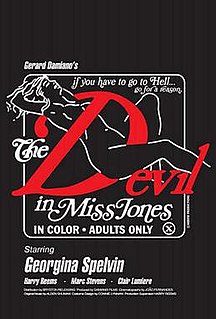 W
WThe Devil in Miss Jones is a 1973 pornographic film, written, directed and produced by Gerard Damiano and starring Georgina Spelvin and Harry Reems. It is widely regarded as a classic adult film, released during the Golden Age of Porn (1969–1984). After his 1972 success with Deep Throat, Damiano shot the film in a converted apple-packing plant in Milanville, Pennsylvania. Along with Deep Throat and Behind the Green Door, the film is associated with a time in American culture known as "porno chic", in which adult erotic films were just beginning to be widely released, publicly discussed by celebrities and taken seriously by film critics. The film's plot was inspired by the 1944 play No Exit by French philosopher Jean-Paul Sartre. The Devil in Miss Jones went on to spawn numerous remakes and sequels.
 W
WFree love is a social movement that accepts all forms of love. The movement's initial goal was to separate the state from sexual matters such as marriage, birth control, and adultery. It stated that such issues were the concern of the people involved, and no one else. The movement began around the 19th century, but was notably progressed by the hippies in the Sixties.
 W
WThe gay liberation movement is a social and political movement of the late 1960s through the mid-1980s that urged lesbians and gay men to engage in radical direct action, and to counter societal shame with gay pride. In the feminist spirit of the personal being political, the most basic form of activism was an emphasis on coming out to family, friends, and colleagues, and living life as an openly lesbian or gay person.
 W
WHair: The American Tribal Love-Rock Musical is a rock musical with a book and lyrics by Gerome Ragni and James Rado and music by Galt MacDermot. The work reflects the creators' observations of the hippie counterculture and sexual revolution of the late 1960s, and several of its songs became anthems of the anti-Vietnam War peace movement. The musical's profanity, its depiction of the use of illegal drugs, its treatment of sexuality, its irreverence for the American flag, and its nude scene caused much comment and controversy. The musical broke new ground in musical theatre by defining the genre of "rock musical", using a racially integrated cast, and inviting the audience onstage for a "Be-In" finale.
 W
WA hippie, also spelled hippy, especially in UK English, was a member of the counterculture of the 1960s, originally a youth movement that began in the United States during the mid-1960s and spread to other countries around the world. The word hippie came from hipster and was used to describe beatniks who moved into New York City's Greenwich Village, San Francisco's Haight-Ashbury district, and Chicago's Old Town community. The term hippie was used in print by San Francisco writer Michael Fallon, helping popularise use of the term in the media, although the tag was seen elsewhere earlier.
 W
WHustler is a monthly pornographic magazine published by Larry Flynt Publications in the United States. Introduced in 1974, it was a step forward from the Hustler Newsletter, originally conceived as cheap advertising for his strip club businesses at the time. The magazine grew from a shaky start to a peak circulation of around 3 million in the early 1980s; it has since dropped to approximately 500,000. It shows explicit views of the female genitalia, becoming one of the first major US-based magazines to do so, in contrast with relatively modest publications like Playboy.
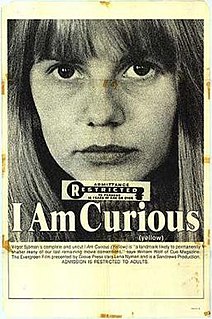 W
WI Am Curious (Yellow) is a 1967 Swedish erotic drama film written and directed by Vilgot Sjöman, starring Sjöman and Lena Nyman. It is a companion film to 1968's I Am Curious (Blue); the two were initially intended to be one 3+1⁄2 hour film.
 W
WKnockers Up! is the second album released by American comedian Rusty Warren in 1960 by the independent record label Jubilee Records. The album became a financial success, lasting on the Billboard Top 200 charts for more than three years. The album consists of a live recording of one of Warren’s performances at the Golden Falcon from Fort Lauderdale, Florida.
 W
WLanguage of Love is a 1969 Swedish sex educational film directed by Torgny Wickman. It was an international success.
 W
WLast Tango in Paris is a 1972 erotic drama film directed by Bernardo Bertolucci, which portrays a recently widowed American who begins an anonymous sexual relationship with a young Parisian woman. It stars Marlon Brando, Maria Schneider, and Jean-Pierre Léaud.
 W
WLiberation is a 1974 painting by the Norwegian artist Odd Nerdrum. It depicts a room with a mattress where a couple have sexual intercourse with the woman on top of the passive man.
 W
WMona (1970) is a sexually explicit adult film that contains a number of unsimulated non-penetrative sex scenes as well as penetrative ones. The film is regarded as the second sexually explicit film to receive a general theatrical release in the United States, after Blue Movie (1969). Unlike Blue Movie, however, Mona had a plot, though there was more emphasis on the action.
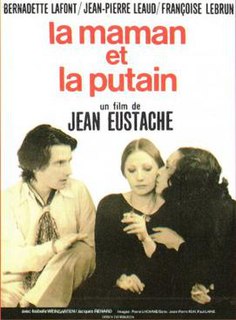 W
WThe Mother and the Whore is a 1973 French film directed by Jean Eustache and starring Jean-Pierre Léaud, Bernadette Lafont and Françoise Lebrun. An examination of the relationships between three characters in a love triangle, it was Eustache's first feature film and is considered his masterpiece. Eustache wrote the screenplay drawing inspiration from his own relationships, and shot the film from May to July 1972.
 W
WPenthouse is a men's magazine founded by Bob Guccione. It combines urban lifestyle articles and softcore pornographic pictorials that, in the 1990s, evolved into hardcore.
 W
WPlayboy is an American men's lifestyle and entertainment magazine, formerly in print and currently online. It was founded in Chicago in 1953, by Hugh Hefner and his associates, and funded in part by a $1,000 loan from Hefner's mother. Notable for its centerfolds of nude and semi-nude models (Playmates), Playboy played an important role in the sexual revolution and remains one of the world's best-known brands, having grown into Playboy Enterprises, Inc. (PEI), with a presence in nearly every medium. In addition to the flagship magazine in the United States, special nation-specific versions of Playboy are published worldwide, including those by licensees, such as Dirk Steenekamp's DHS Media Group.
 W
WThe protests of 1968 comprised a worldwide escalation of social conflicts, predominantly characterized by popular rebellions against state militaries and the bureaucracies.
 W
WDie Sexualität im Kulturkampf, 1936, is a work by Wilhelm Reich. The subtitle is "zur sozialistischen Umstrukturierung des Menschen", the double title reflecting the two-part structure of the work.
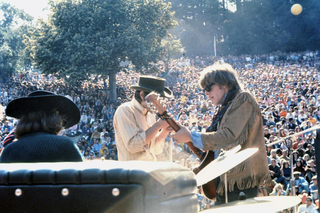 W
WThe Summer of Love was a social phenomenon that occurred during the summer of 1967, when as many as 100,000 people, mostly young people sporting hippie fashions of dress and behavior, converged in San Francisco's neighborhood of Haight-Ashbury. More broadly, the Summer of Love encompassed the hippie music, hallucinogenic drugs, anti-war, and free-love scene throughout the West Coast of the United States, and as far away as New York City.
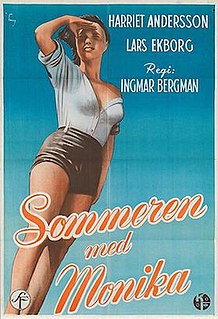 W
WSummer with Monika is a 1953 Swedish romance film written and directed by Ingmar Bergman, and starring Harriet Andersson and Lars Ekborg. It is based on Per Anders Fogelström's 1951 novel of the same title. It was controversial abroad at the time of its first release for its frank depiction of nudity and, along with the film One Summer of Happiness from the year before, directed by Arne Mattsson, it helped to create the reputation of Sweden as a sexually liberated country.